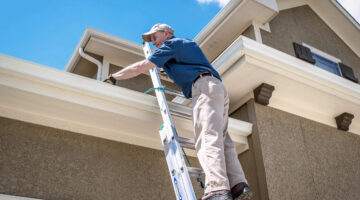Get Your Facts Right When It Comes To Roofing Warranties!
Repairs and reroofing projects are costly, albeit a noble investment since if done well with quality products the first time round, the roof may serve you for a lifetime. Warranties are a very important part of receiving any service since they cover you against any problems that may arise after project completion.
Roofing constructors should offer warranty periods every time they carry out a project. Warranties go a long way as a marketing tool and if one is not careful to review the documents properly, you may sign under conditions that you are not in agreement with (due to an oversight on your part) and end up suffering major losses in case of roofing system failure. There are 2 types of warranty covers that you should always inquire about and I am sharing them with you below:
1. Coverage against manufacturing flaws in the roofing products that varies across brands – Ensure that you clearly ask if it covers the products only or plus the other components of the entire roofing system.
2. Coverage against workmanship blunders – Some contractors cover even 10 plus years after workmanship though it only lasts as long as the contractor is in business.
The below are points to keep in mind when studying warranties:
• Get help from a lawyer friend to look for hidden meaning of words like ‘significant’. A phrase like “only significant algae’ staining is compensated” is vague and you should know what the phrase means exactly before signing the contract.
• Warranties cover defects and not the roof life duration. The general deterioration of roof due to wear and tear is not normally covered. Environmental factors may reduce the lifespan of the roof.
• They cover only specific conditions like wind or algae for example, but issues like the house owner going on the roof and causing it to defect are not reimbursed.
• They are prorated meaning up to a certain period of time (up-front time), the value to be reimbursed reduces. Make sure you are fully aware of this and have consented with it before signing the contract.
Take time to read the fine print of the details and specifics of the coverage for example, coverage for algae infestation on shingles means cleaning and not replacement of new shingles.
• Your warranty may not be valid until you make full payment to the contractor for their goods and services.
• People take time to read through what is covered and forget to check what is NOT covered. Acts of God such as hurricanes cannot be faulted to the manufacturer, thus not always covered.
Get the original documents and company contacts and store them in a safe place for future use. Periodic maintenance is compulsory so as to keep the warranty in full effect. At the very least, roofing contractors should visit the premise twice a year and records on coatings, trash removal or repairs, should be documented and kept in the same file as that of the warranty and contract records. Apart from that reason, the design of all roofs dictates that maintenance should be done to uphold the covering disposition so that it services you for longer. It should be a win-win situation that way!


